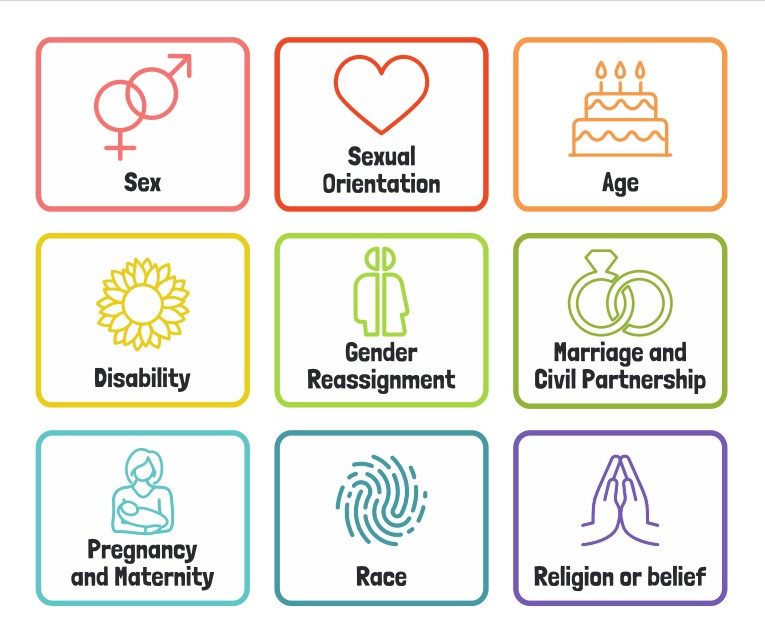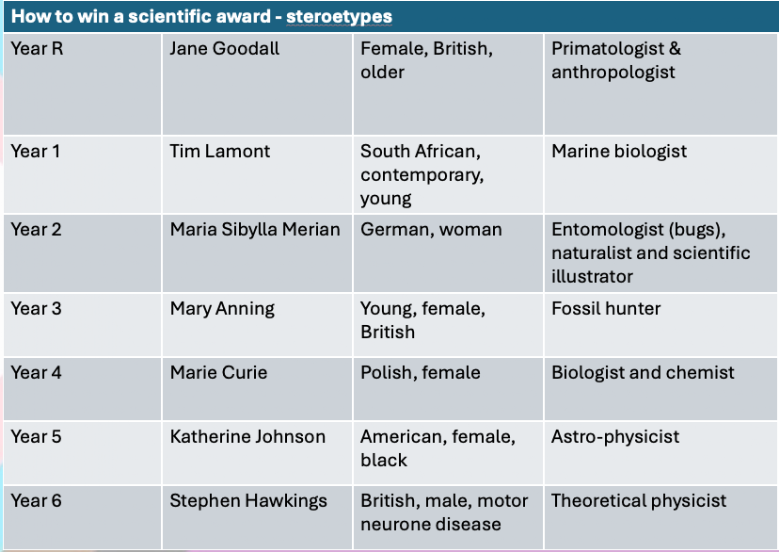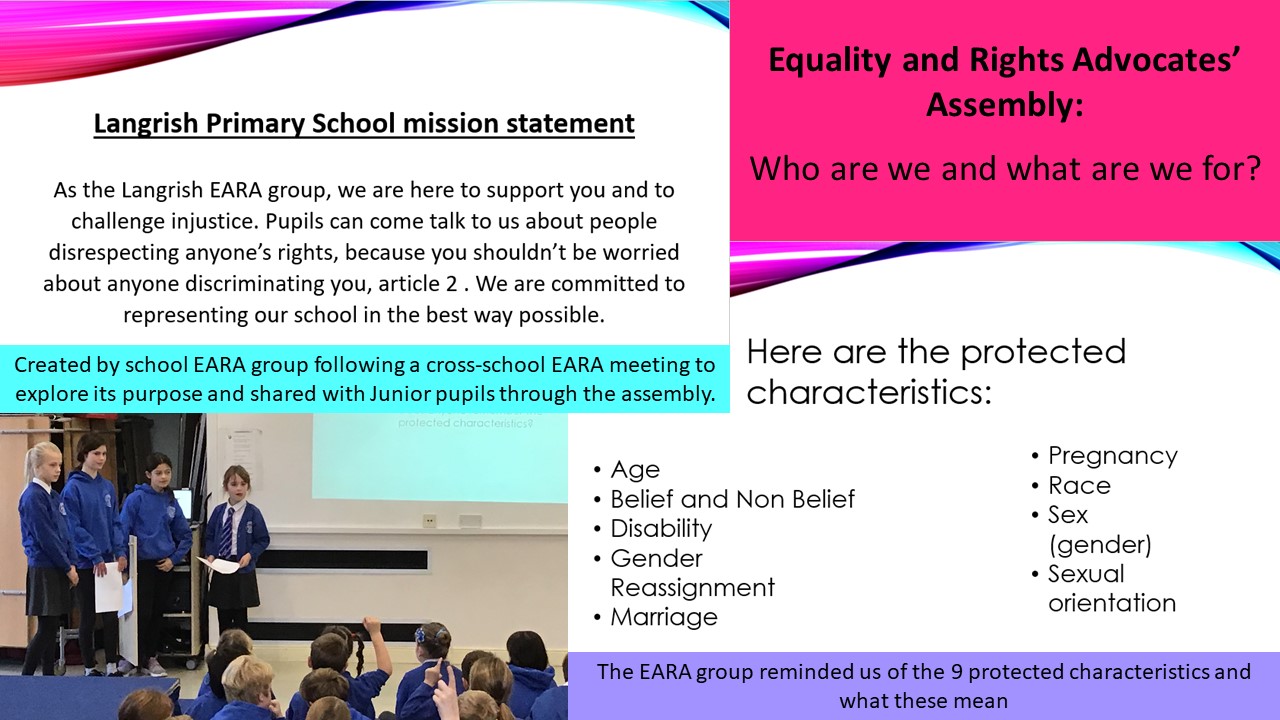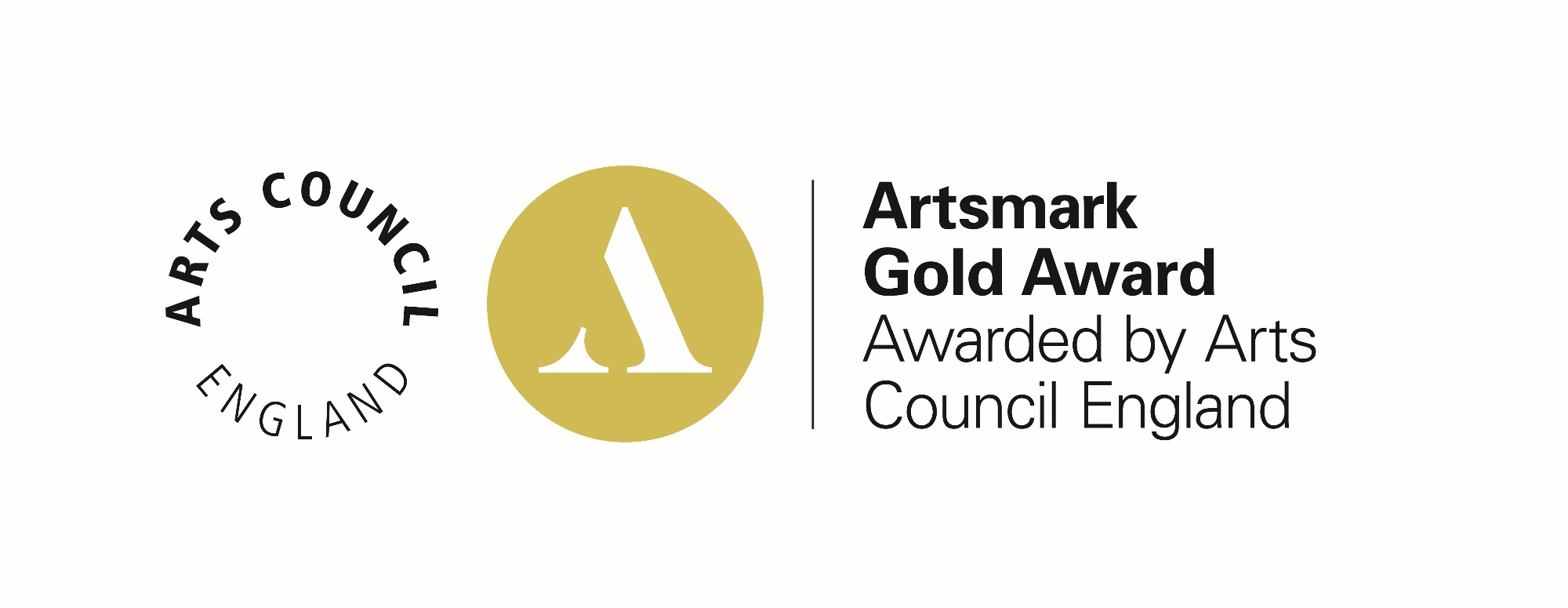Inclusion and Equality Information
For information on Hampshire's services for young people with special educational needs and disability, advice and support service, please click below:
We hope you will find all the information you are looking for on our site, including our Inclusion Policy which can be found here and our SEND information report, attached at the bottom of this page. However, please do not hesitate to contact the office should you have any further questions.
Public Sector Equality Duty
What is the Public Sector Equality Duty?
The single Public Sector Equality Duty (PSED) came into effect in April 2011 as a result of the Equality Act. It requires public bodies to promote equality and replaced three pre-existing duties relating to disability, race and gender equality.
The PSED applies to all maintained and independent schools, including academies, and maintained and non-maintained special schools.
Protected Characteristics
The Department for Education (DfE) has published non-statutory advice that sets out schools' obligations under the PSED.
Paragraph 5.1 explains that the PSED extends to the following protected characteristics:
- Race, disability, sex, age, religion or belief, sexual orientation, pregnancy and maternity, gender reassignment
Paragraph 5.1 of the document explains that the PSED has three main elements. In carrying out their functions, public bodies are required to have due regard to the need to:
- Eliminate discrimination and other conduct that is prohibited by the Equality Act 2010
- Advance equality of opportunity between people who share a protected characteristic and people who do not share it
- Foster good relations across all characteristics, and between people who share a protected characteristic and people who do not share it
Due Regard
Paragraph 5.4 of the DfE's advice says that 'due regard' has been defined in case law and means giving "relevant and proportionate consideration to the duty".
For schools, this means:
- Decision makers must be aware of the duty to have due regard when making a decision or taking an action, and must assess whether it may have implications for people with particular protected characteristics
- Schools should consider equality implications before and at the time that they develop policy and take decisions, not as an afterthought, and they need to keep them under review on a continuing basis
- The PSED has to be integrated into the carrying out of the school’s functions, and the analysis necessary to comply with the duty has to be carried out seriously, rigorously and with an open mind
What does our school do to eliminate discrimination ?
We have set a clear vision and values which expect all our staff to act in a non-discriminating manner and be mindful to avoid actions that will be deemed as such to the public and our wider community.
We have up-to-date and ratified policies which set out a clear message that discrimination is not tolerated. This includes the staff code of conduct, rights respecting behaviour, anti-bullying, safeguarding and child protection policies.
We understand that it is unlawful to fail to make reasonable adjustments to overcome barriers to using services caused by disability.
The governing body and school leaders involved in recruitment will avoid unlawful discrimination in all aspects of employment including recruitment, promotion, opportunities for training, pay and benefits, discipline and selection for redundancy.
Through a structured PSHE curriculum offer (including SCARF curriculum), assemblies, workshops and visits, equalities are discussed with and taught to the children, exemplifying the British Values and school values that we believe in. Planning across all areas of the curriculum uses resources and case-studies which reflect diversity and challenge stereotypes.
School display space is used to promote awareness of protected characteristics and our EARA (Equality and Rights Advocates) group work with other local schools to promote and develop an inclusive ethos for the school; this is shared through their position on School Parliament and initiatives such as leading assemblies.
Our Rights Respecting ethos recognises (Article 2 and 23 in particular) that all children have rights set out in the UNCRC, and individual children and young people shouldn’t be discriminated against when these rights are realised.
Promoting diversity through the protected characteristics

We have adopted these symbols, from Picture News, to use across the school whenever one of the characteristics is referenced. Our EARA group have been busy creating a new display space, where these are more prominently displayed alongside books which feature characters representing them. In our Infant classrooms, these stories are shared under the umbrella term of 'celebrating difference'; this becomes more refined in the Junior classes where individual characteristics are referenced. Each class has a set text per half term to share as part of their PHSE provision. These are carefully mapped to link with their learning and experiences so all protected characteristics are understood within a context by the end of Year 6.
Rockidz Anti-Bullying Workshop, March 2025
Following on from our work in November 2024 (Anti-bullying week), we invited Rockidz in for a head-banging workshop where we learnt that it is ok to be me, celebrating our individualism and mutual respect for others and our differences. We acted like rockstars, learnt the acronym 'YASBA' (you're awesome so be awesome) and the teachers even had to get up and dance!
EARA Network Meeting Spring 2025
This term, our EARA group (Years 5 and 6) attended our termly network meeting with the other EARA schools in East Hampshire. At this meeting, we learnt about kindness and respect towards others, especially those with disabilities or neurodivergence. Our school also presented all of the hard work we have been up to this academic year:

EARA-Kindness Assembly March 2025
After one of our EARA meetings, we decided to put together a kindness assembly, where we gave the school many different phrases, words and sayings they can use to spread kindness across the school. We then gave the school some time to think about other things they can say or do to be kind.
The People Project
Inclusion and diversity remain a hugely important aspect of our children's education; we often ask ourselves how we can broaden our children’s experience of difference when the majority of their interactions are with those of a very similar demographic. Over the past few years, we have developed the content of our reading scheme and library to better reflect diversity; through auditing our curriculum, leaders have ensured those studied are representative of broader society and last year the children thoroughly enjoyed our cultural afternoon, learning from their peers about the range of cultures in their own classes.
As part of our School Development Plan, this year we wanted to launch a new element to our PHSE curriculum, which would allow time to stop and celebrate this cultural richness in its own right. How can we equip our children to talk about others using respectful language and empathy if we do not take the time to model this discretely within a context? We wanted an exciting, whole-school approach: the People Project was born!

Learning is captured in class books, through displays and videos for ease of sharing with the whole community. We hope that over time, the children will develop a repertoire of strong, inspirational figures who exemplify the differences we learn about, helping to contextualise and embed their understanding.
How to represent your country, May 2025
During the first half of Summer Term, Langrish built upon the work completed on our 'People Project' by exploring sports people in our 'How to represent your country' unit, this time investigating how our differences define us (intersectionality in KS2). Pupils learnt about their sports person in PSHE, tried the sport out for themselves in Physical Education lessons and our final outcome, for this unit, was split into two. One of the outcomes (for EYFS and KS1) is on the right, 'Langrish's Question Of Sport,' a new quiz show dedicated to sport and famous sports people. Take a look now! The overview for this unit of the People Project is below. In addition, we produced a 'Match Of The Day' style commentary television show, produced and directed by our EARA group, discussing KS2's sports lessons, which is below.

How to win a Scientific Prize, March 2025
In Spring 2, 2025, Langrish continued our 'People Project' by learning about famous scientists from an array of scientific fields who have a variety of protected characteristics. The theme for this unit was stereotypes. Year groups learnt about different scientists and produced work around these scientists, which will go  in to their scientist books (red books building up a library of books to take with them through school). Our final outcome was to put together a YouTube series (as suggested and produced by our EARA group). We used a green screen to give the video a YouTube series feel and teachers chose Individuals from each year group to deliver their work. The YouTube series is on the right, as well as the overview for this unit of work.
in to their scientist books (red books building up a library of books to take with them through school). Our final outcome was to put together a YouTube series (as suggested and produced by our EARA group). We used a green screen to give the video a YouTube series feel and teachers chose Individuals from each year group to deliver their work. The YouTube series is on the right, as well as the overview for this unit of work.
Stay tuned for the Summer Term when we will be exploring inspirational sports people! 'How to represent my country' is the unit and our theme will be 'how our differences define us' with a focus on intersectionality in KS2.
How to be a Rockstar, January 2025
In Spring 1, 2025, we began with our music project: How to be a Rockstar. With an overarching theme of celebrating difference, you can see details of what each class’s focus was below. To showcase the wonderful work each class completed, our EARA group produced and directed a music video for the Guns N Roses song 'Sweet Child Of Mine.' This video showcases the work produced within the unit. They wanted the video to be reminiscent of Top Of The Pops!
| Year | Rockstar | Learning Focus |
|---|---|---|
| R | Taylor Swift | Who is she? |
| 1 | Freddie Mercury | How did he use power poses to help him? |
| 2 | Elton John | How does he show his creativity & identity? |
| 3 | Stevie Wonder | What is it like to be a child protege? |
| 4 | The Spice Girls | How can our differences make us stronger? |
| 5 | Florence and the Machine | How diverse should a festival's headliners be? |
| 6 | BTS | How does influence spread? |

Next half-term, our theme of stereotypes will guide the learning for our science project as consider 'How to Win a Scientific Prize.'
Anti-Bullying Week Autumn 2024
This year's Anti-Bullying Week theme was 'Choose Respect'. During the week, our students completed work around celebrating differences and investigating the correct language to use to describe different protected characteristics. This was put together by our EARA group. In KS2, the children voted for the task they wanted to complete. Our EARA group then produced the following 'Langrish News' report for you to share their learning!
EARA Board, Autumn 2024
This half-term, the board in the school hall has been devoted to our EARA work. Our EARA group wanted to ensure everyone understood what EARA is (Equality and Rights Advocates) and to organise Anti-Bullying week.

Equality Tree October 2024
In our school library, our EARA group produced our new equality tree filled with equality-driven books, covering all the protected characteristics. The tree is designed to promote equality-driven choices when visiting the library.

Protected Characteristics' Assembly, December 2022

Hampshire Governors Conference, October 2022
This month, we were invited to speak at the Hampshire Governor conference by Minnie Moore, Hampshire’s Advisor on Equality and Diversity Education. A selection of our more senior members of the School parliament worked with Year 6 to put together a presentation which reflected how Pupil Voice is in action at Langrish and the impact this has. The children then gave their
presentation to representatives from approximately 50 schools across the county, sharing their message about the importance and power of Pupil Voice and participation. Not only did the pupils enjoy the opportunity to have their voices heard on a bigger stage but they were also inspired by the work of secondary pupils who were presenting alongside them; the confidence with which they spoke and the range of pupil groups speaking on behalf of their peers for direct change by children just a few years older than them was truly motivational.







